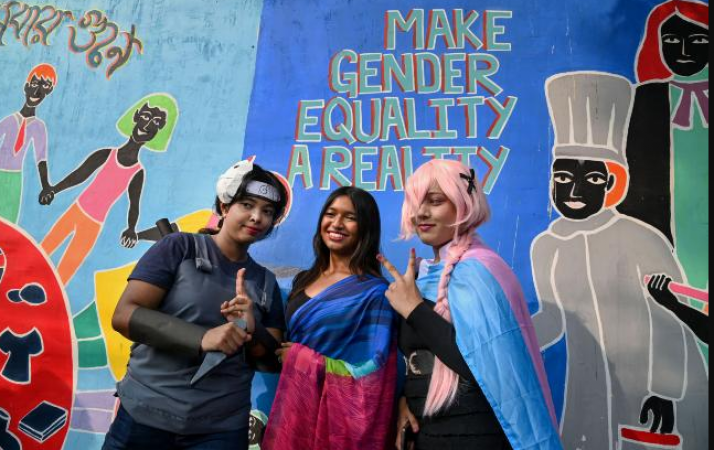
Should the marriage of a man to a man and a woman to a woman be given legal recognition or not? A constitutional bench of five judges of the Supreme Court is going to hear this on Tuesday. But just before this hearing, the Central Government once again opposed gay marriage. An appeal is also being made to dismiss all the petitions by filing an affidavit. The Centre has said that only Parliament can decide on marriages, not the Supreme Court. On March 13, a bench headed by Chief Justice DY Chandrachud also transferred the case to a constitutional bench of five judges.
Now the bench of CJI Chandrachud, Justice SK Kaul, Justice Ravindra Bhat, Justice Hima Kohli, and Justice PS Narasimha is going to hear this case from April 18.
1. What is the matter?
Petitions have also been filed in different courts, including the Delhi High Court, demanding recognition of same-sex marriages.
On December 14 of last year, the Supreme Court sought a response from the Centre on an appeal to transfer two petitions pending in the Delhi High Court. In these petitions, an appeal was also made to issue instructions to recognise same-sex marriage.
Prior to that, on November 25, the Supreme Court also presented notices to the Centre on the petitions of two different same-sex couples. These couples have also appealed to the authorities to direct them to register their marriage under the Special Marriage Act. On January 6 of this year, the Supreme Court merged all these petitions and transferred them to itself.
2. What is the demand for homosexuals?
In addition to challenging several legal provisions related to marriage, including the Special Marriage Act and the Foreign Marriage Act, appeals have also been made to allow homosexuals to marry in the petitions filed by homosexuals.
Homosexuals have also demanded that the right to marry the person of their choice be given to the LGBTQ (Lesbian, Gay, Bisexual, Transgender, and Queer) community as part of their fundamental rights.
In a petition, an appeal was also made to make the Special Marriage Act of 1954 gender neutral, so that no discrimination is done with a person because of his sexual orientation.
3. Why is the Centre against it?
The central government is against allowing same-sex marriages. In this case, the Centre had appealed to the Supreme Court to dismiss all the petitions filed in the affidavit.
The Centre had said that even though the Supreme Court has decriminalised Section 377 of the IPC, it does not mean that the petitioners can claim a fundamental right to same-sex marriage.
The Centre has said that gay marriage is against the concept of the Indian family. The Centre said that same-sex marriage cannot be compared with the concept of children born to husband and wife in an Indian family.
Even according to the mention in the law, same-sex marriage will not be recognised. Because in it the definition of husband and wife has been given biologically. Accordingly, both have legal rights as well. How can husband and wife be considered separately in case of dispute in a same-sex marriage?
The Centre has said in court that giving legal recognition to same-sex marriages is going to create a lot of complications in issues related to adoption, divorce, maintenance, inheritance, etc. All the statutory provisions related to these cases are based on marriage between a man and a woman.
SIT to probe Atiq-Ashraf murder case
Odisha: Hindu man killed in stone pelting at Hanuman Shobha Yatra,
Bihar: 27 dead after consuming poisonous liquor. Nitish Kumar is constantly busy in Iftar parties